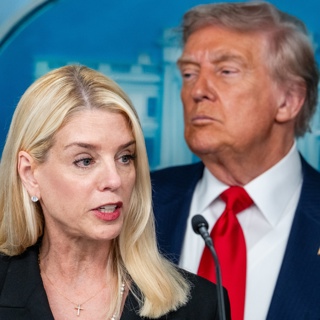
MAHA's fight against food dyes, corn syrup and seed oils
During confirmation hearings to become secretary of the Department of Health and Human Services, Robert F. Kennedy Jr. warned that “highly chemical-intensive processed foods” are “poisoning the American people.” A striking report from the federal government has since found that Americans on average get about half their calories from ultra-processed foods, which have been linked in studies to increased rates of obesity and chronic disease. A central part of the Make America Healthy Again movement’s food agenda is going after some common ingredients in packaged foods: seed oils, corn syrup and food dyes. But what kind of dent will these efforts make in America’s health? Today, host Elahe Izadi brings in nutrition columnist Anahad O’Connor and national health reporter Rachel Roubein to discuss MAHA’s popular food policies, what the science says about the threat of these ingredients and some simple steps we can all take to improve our diets. Read More: Coke confirms cane sugar change. RFK Jr. calls it a MAHA win. Is it?What science says about artificial food dyes amid RFK Jr.’s push to ban themWhich oil do you cook with? The answer can impact your health.Why additives are so common in America’s foodWhich breakfast is highest in sugar? Test your knowledge with our quiz.We analyzed dozens of ultra-processed foods. Here are the healthiest options.Today’s show was produced by Elana Gordon. It was edited by Peter Bresnan and mixed by Sam Bair. Thanks also to Emily Codik and Fenit Nirappil.Subscribe to The Washington Post here.
30 Sep 32min

Why Hegseth ordering generals to meet is so unusual
On Tuesday, the top U.S. generals will meet at Quantico for an audience with Defense Secretary Pete Hegseth and President Donald Trump. Hegseth’s order for the gathering comes on the heels of the firing of top military officers. It also lands in the middle of Hegseth’s attempts to purge the military of DEI initiatives and programs that he sees as not aligned with the military’s core mission of “lethality.” President Trump is expected to address the group. His speech comes after his recent order to send the National Guard into “war ravaged” Portland, Oregon, over the objection of local officials. Host Colby Itkowitz speaks with Pentagon reporter Dan Lamothe about how The Post broke the story of the generals’ meeting, the logistics of gathering so many senior military officials in one place, and the optics of the president and defense secretary speeches to the top brass.Today’s show was produced by Rennie Svirnovskiy with help from Laura Benshoff. It was edited by Ariel Plotnick and mixed by Sean Cater. Subscribe to The Washington Post here.
29 Sep 20min

Meet the man who invites 1,000 people to his house every month
David Weiner is washing dishes. It’s the 21st of the month, which means his D.C. rowhouse is full of people. Some are friends he’s known for decades, others are people he’s never met. There’s a jazz band playing standards downstairs, and the music is floating up through the house. Some of the musicians are professionals, others are amateurs who showed up with an instrument and enough courage — liquid or otherwise — to join in.The price of admission is a $21 suggested donation to cover costs and pay the house band. A bottle of wine or food to share is welcome, too. Weiner always makes salmon and provides a big salad, as well as some snacks. Nearly everything else on the crowded table of food is brought by guests.The monthly party happens rain or shine, whether the 21st falls on a Monday or a Tuesday or a Friday. There was a hiatus during the pandemic, but otherwise it’s happened almost every month for 15 years, drawing anywhere from 40 to a hundred people of all ages each time.The question I had for Weiner is: How does he keep this going?You can read more about Wiener’s jazz party here.If you’re looking for more surprising, delightful stories about the best of humanity, check out The Optimist from The Washington Post. We also have a newsletter: Subscribe to get stories from The Optimist in your inbox every Sunday morning.Today’s show was reported and produced by Maggie Penman and Ted Muldoon, who also mixed the show. The Optimist’s editor is Allison Klein. If you liked hearing this story on “Post Reports,” send us an email at podcasts@washpost.com. You can email Maggie directly at maggie.penman@washpost.com.Subscribe to The Washington Post here.
27 Sep 9min

Could a government shutdown benefit Trump?
Potential government shutdowns seem to happen every few months. But this time, the stakes feel especially high. Democrats are getting pressure from their base to stand up to President Donald Trump; in exchange for voting with Republicans to keep the federal government funded, Democrats hope to extract money for health care premiums. Meanwhile, White House officials are promising mass firings of federal workers if the government shuts down.Host Colby Itkowitz speaks with the Post’s White House economic policy correspondent Jacob Bogage and Early Brief newsletter writer Dan Merica about the optics and politics heading into next week’s Oct. 1 government funding deadline.Today’s show was produced by Josh Carroll and Laura Benshoff. It was edited by Ariel Plotnick and Laura Benshoff and mixed by Sean Carter. You can watch this podcast episode on YouTube here.Subscribe to The Washington Post here.
26 Sep 28min

Why does everyone want your 5-star rating?
The request for five stars — from airport parking lots, orthopedists or even your local liquor store — seems to be filling our inboxes more and more every single day. But do our reviews and ratings even matter? Host Elahe Izadi chats with feature reporter Ashley Fetters Maloy about review culture, how our feedback can transform businesses big and small, and why our ratings are reshaping our relationship to companies and ourselves. So, if you’ve read this far, make sure to listen to our show then rate and review it wherever you get your podcasts. Today’s show was produced by Thomas Lu with help from Peter Bresnan and Rennie Svirnovskiy. It was mixed by Sean Carter. And edited by Ted Muldoon with help from Maggie Penman. Subscribe to The Washington Post here.Check out The Washington Post’s Letterboxd here.
25 Sep 18min

Trump’s pressure on Pam Bondi and the DOJ
As soon as he lost the presidential election in 2020, Donald Trump vowed he would go after his perceived political opponents. Now that he’s president again, he’s escalated his calls for criminal charges to be brought against some of those people — New York Attorney General Letitia James, former FBI director James B. Comey, and Sen. Adam Schiff (D-California). He claimed that all three were “guilty as hell;” all three have denied wrongdoing. Earlier, a U.S. attorney general resigned under White House pressure after declining to seek indictments against Comey and James. Host Elahe Izadi speaks with reporter Jeremy Roebuck about the orders by the president and what they could mean for the future of law enforcement.Today’s show was produced by Laura Benshoff and Sabby Robinson. It was edited by Reena Flores and mixed by Sean Carter. Subscribe to The Washington Post here.
24 Sep 28min

The confusion over Tylenol, pregnancy and autism
President Donald Trump has made the search for finding a “cure” for autism a centerpiece of his public health agenda. This week he shared major developments in that effort.On Monday, the Trump administration announced that the Food and Drug Administration would be adding a warning label to Tylenol and similar drugs that contain acetaminophen. Trump has suggested a connection between the widely used medication and autism. The president also promoted the drug leucovorin as a potential treatment for autism.The announcement has led to confusion among many people about autism and the safety of Tylenol during pregnancy. Joining “Post Reports” today to sift through this confusion is Washington Post White House reporter Dan Diamond. He and host Elahe Izadi also discuss what led to this announcement, what the Trump administration could do next and who pregnant patients should be turning to for health care. Today’s episode was produced by Rennie Svirnovskiy, with help from Lucas Trevor. It was mixed by Sam Bair and edited by Elana Gordon. Thanks to Sabrina Malhi, Akilah Johnson, Ariana Eunjung Cha and Lynh Bui.Subscribe to The Washington Post here.
23 Sep 26min

Brendan Carr, the FCC muscle behind Trump's anti-media crusade
After the abrupt suspension of “Jimmy Kimmel Live!” last week over comments host Jimmy Kimmel made following the killing of Charlie Kirk, many credited one person for getting Kimmel off the air: Brendan Carr, chair of the Federal Communications Commission. Hours before the suspension was announced, Carr seemed to threaten FCC action against networks, saying “we can do this the easy way or the hard way,” and advising Disney and other media companies to “find ways to change conduct.” Carr denies playing a direct role in the Kimmel suspension, but critics say Carr has emerged as Trump’s top enforcer in the president’s war against the media. Host Elahe Izadi talks to media reporter Scott Nover about Carr’s background, his role in the Jimmy Kimmel drama and how he may be trying to expand the power of the FCC. Today’s show was produced by Peter Bresnan, with help from Elana Gordon. It was edited by Ariel Plotnick and mixed by Sam Bair. Special thanks to James Graff. Subscribe to The Washington Post here.
22 Sep 19min






















